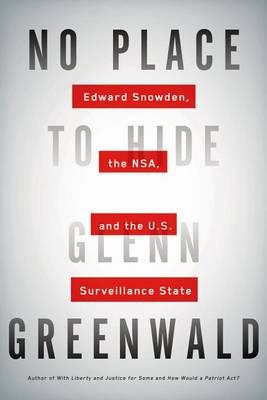In May 2013, Glenn Greenwald set out for Hong Kong to meet an anonymous source who claimed to have astonishing evidence of pervasive government spying and insisted on communicating only through heavily encrypted channels. That source turned out to be the 29-year-old NSA contractor Edward Snowden, and his revelations about the agency’s widespread, systemic overreach proved to be some of the most explosive and consequential news in recent history, triggering a fierce debate over national security and information privacy. As the arguments rage on and the government considers various proposals for reform, it is clear that we have yet to see the full impact of Snowden’s disclosures.
Greenwald also takes on the establishment media, excoriating their habitual avoidance of adversarial reporting on the government and their failure to serve the interests of the people. Finally, he asks what it means both for individuals and for a nation’s political health when a government pries so invasively into the private lives of its citizens—and considers what safeguards and forms of oversight are necessary to protect democracy in the digital age.
Recently, via video link from Moscow, Edward Snowden joined MIT professor Noam Chomsky and The Intercept’s Glenn Greenwald for a discussion on privacy rights hosted by the University of Arizona College of Social and Behavioral Sciences. The panel was moderated by Nuala O’Connor, the president of the Center for Democracy and Technology.
Highly recommended, click below to watch the discussion:
https://theintercept.com/2016/03/30/edward-snowden-noam-chomsky-glenn-greenwald-a-conversation-on-privacy/



